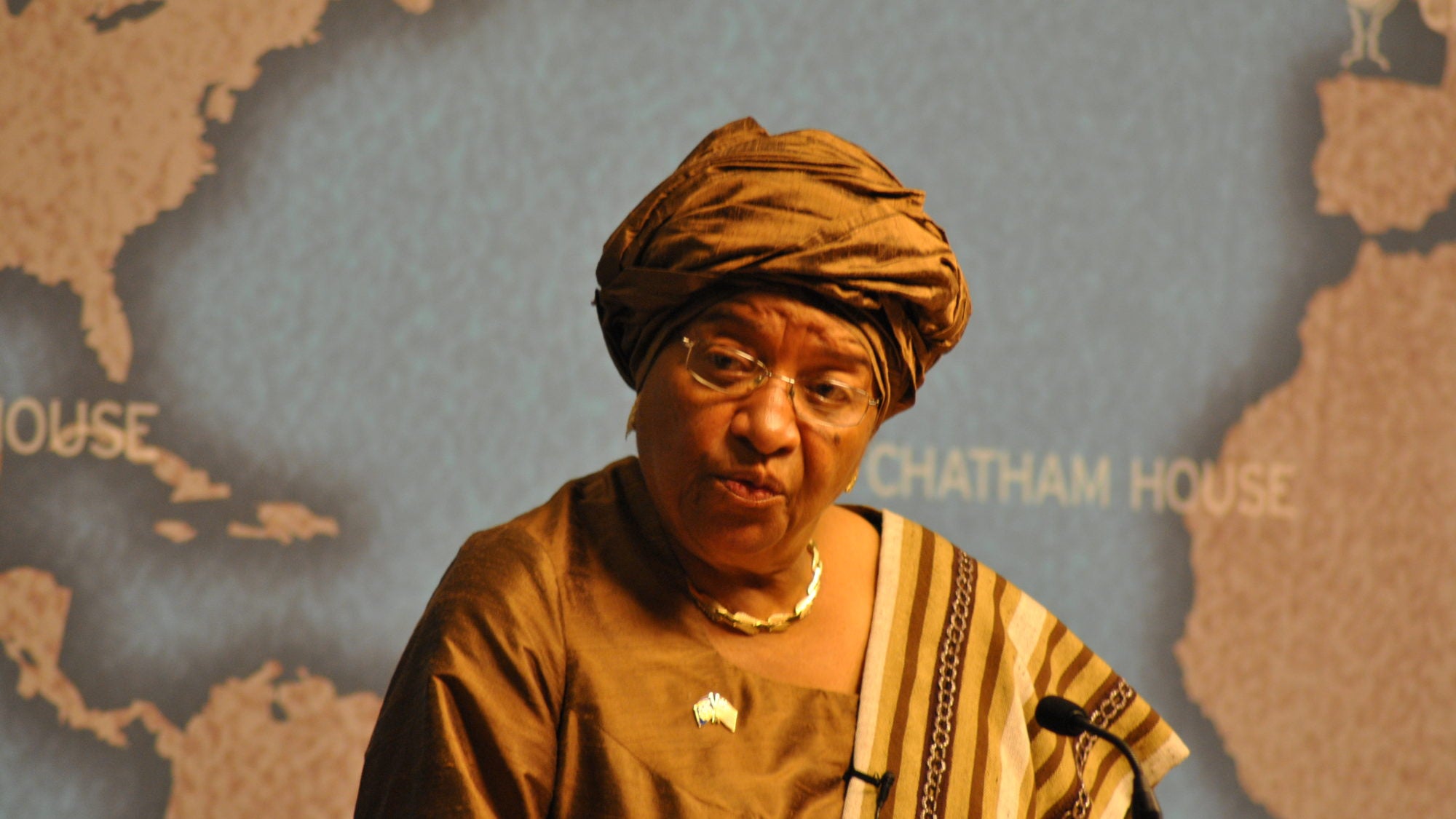GJIA: In Liberia, as a government minister and as a private citizen, you have lived and served under authoritarian rulers such as Samuel Doe and Charles Taylor. Many outsiders question how democracy can prosper in countries where it is not traditionally ingrained; how do you respond to this suspicion?
ES: Democracy can have interruptions, and those interruptions can cause great damage and can be followed by dictatorships. But I think at the end of the day, we get past those. There is nothing more sustainable than democracy. While it does get challenged and interrupted, when those handicaps are gone, you do not create a new system, but instead you find voices that are always promoting democracies and fighting for them. Those people make sacrifices so that democracy can prevail.
GJIA: You were the President of Liberia for twelve years, and served the country in various ways prior to your election in 2006. What would you claim as your greatest accomplishment in that time?
ES: Peace. Liberia has had so much conflict, including terror, which destroyed the country. This was in part due to warlords and people from different political factions and ethnic groups, along with the complexities that exist in our society because of our historical experiences. Even in today’s post-conflict environment, these factors could easily bring us back to conflict. I think my biggest accomplishment is being able to manage peace, with a certain amount of compromise, and at the same time promoting development, equity, and freedoms in all of society.
GJIA: Given your background in economics and experience with the Treasury Department in Liberia before becoming President, what would you say is the greatest challenge in rehabilitating the Liberian economy? How do you see the role of grassroots efforts such as microfinance institutions and credit unions?
ES: Sometimes I am torn as to whether tackling the value system is the future of domestic revenue. One thing I have not succeeded in is changing the moral values, but that is not something that you can do quickly. It takes a lot of time and effort to sensitize people – through school and church systems – and to change the mindset of people. But I believe that I have succeeded in giving people a sense of hope in the future and confidence in themselves.
GJIA: What do you see as the future for Africa and the continent’s position in the international community? Are there challenges or opportunities ahead?
ES: Across the continent, we see more integration, more cooperation, and more of a common voice from Africa in matters related to global affairs, including issues related to the United Nations and to migration. You see the same trends as well in promoting Africa’s coherent participation in global institutions.
GJIA: You are on the Council of Women World Leaders and served as Africa’s first elected female head of state. What do you believe is the role of women in the future of leadership?
ES: The goal is to have a place at the table. Whatever it is – president, church leader, business executive, or professor – we must make sure that there is no constraint, prohibition, or obstacle that keeps women from having a voice at the table.
. . .
This transcript has been lightly edited for clarity and length.
Ellen Johnson Sirleaf, the first elected female head of state in Africa and recipient of the Nobel Peace Prize in 2011, served as the 24th President of Liberia from 2006 to 2018. Ms. Sirleaf served as Minister of Finance from 1979-1980 under the Tolbert administration, and was President of the Liberian Bank for Development and Investment before being forced to flee the country in 1980. From there, she worked for the World Bank, Citibank, and Equator Bank, before being appointed as Director of the United Nations Development Program’s Regional Bureau for Africa. Ms. Sirleaf holds a degree in Accounting from Madison Business College, and a graduate degree in Economics and Public Policy from Harvard University.

